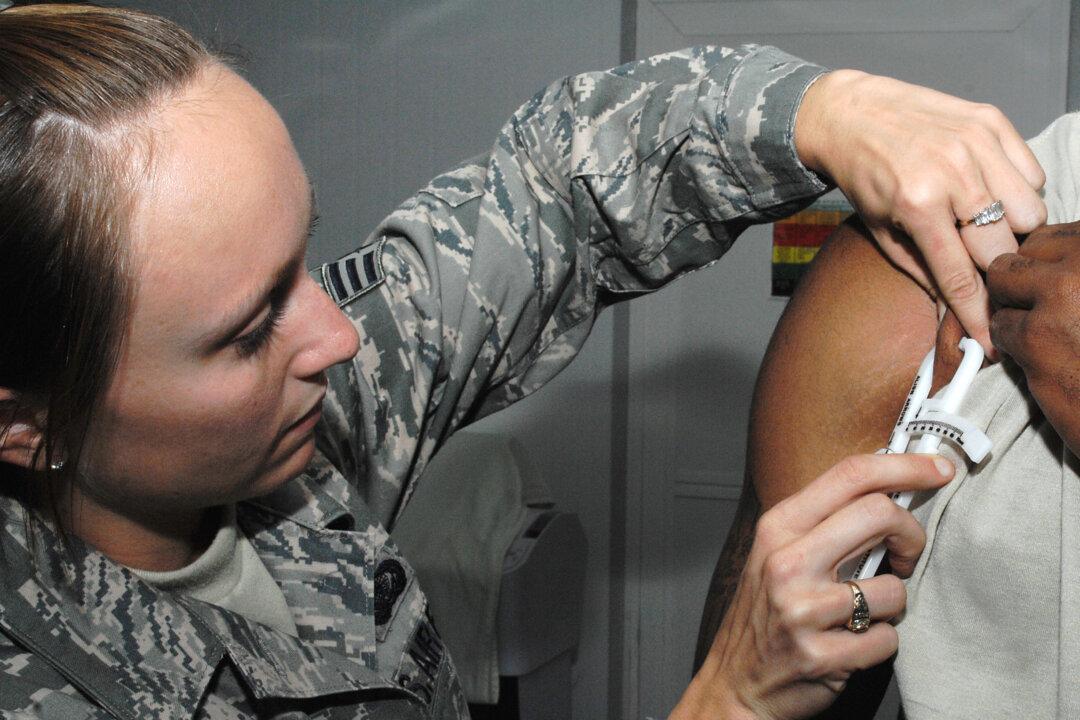The U.S. Air Force is lowering body fat standards for new recruits as the military branch struggles to find enough people to join its ranks.
Males will be limited to a maximum of 26 percent body fat, while females face a maximum of 36 percent, Leslie Brown, a spokesperson for the Air Force Recruiting Service, told The Epoch Times via email. The previous requirements were 20 percent and 28 percent.





